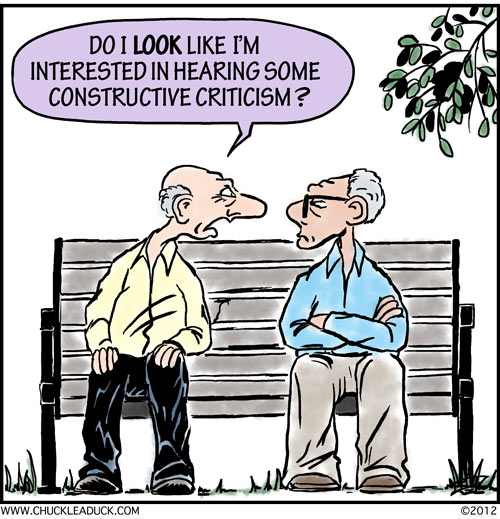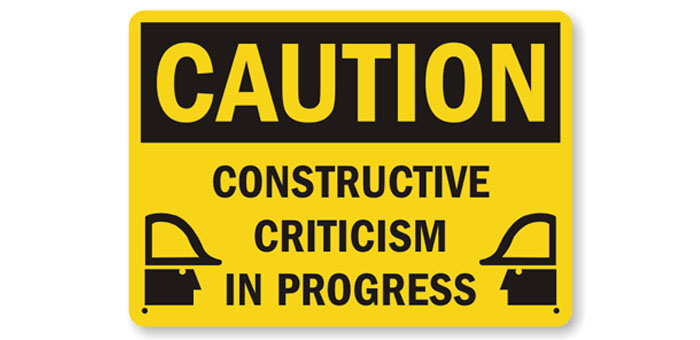
When I grew up in the Bronx, my favorite comedian was Rodney Dangerfield. He was a fellow New Yorker who I could relate to when he would say that he gets no respect at all. I also loved how he showed how happy he was when he went on stage. “What a crowd! What a crowd!” He then would tell the audience “I am okay now. But, last week, I tell you. I was in bad shape.”
I imagine that he got the idea of his “No Respect” routine after many people in his inner circle would criticize young Rodney and they would always start the critical comment by saying “In all due respect.”
I find the phrase “in all due respect” to be a rather interesting one because when someone wants to tell you something “in all due respect”, it never means that this person finally wants to give you the respect you deserve. In fact, the phrase “in all due respect” actually is used to tell you that you deserve no respect at all.
I picture in my mind that Rodney Dangerfield was one of those “door to door” vacuum cleaner salesman I would see on a sitcom. One of the very funny bits is when the salesman comes in and tells the poor woman trying to clean up the house that he has the solution to all her problems. He then proceeds to invade into the home, and sees a plate of spaghetti with tomato sauce. He spills it onto the rug. He opens up the refrigerator, and sees a can of beer. He pours it on the rug as well. After five more items gets tossed or poured on to the rug, he attempts to clean it up with his miracle vacuum, and nothing happens.
We are then taken to the next scene when the salesman is tossed out, and his miracle machine gets tossed out with him. Finally, to add insult to injury, the salesman gets a taste of his own medicine as tomato sauce gets sprayed all over him.
At some point,the Big Boss calls Rodney into his office. The conversation goes like this:
Big Boss: Rodney, can you come in here?
Rodney: Yes, Big Boss.
Big Boss: Rodney. Let me tell you something with all due respect.
Rodney starts for a second to daydream. The Big Boss will tell him something with all due respect! He will finally be getting the respect he deserves and so much craves! Perhaps, he will even get a promotion!
Big Boss: I forgot my train of thought. What was I saying?
Rodney: Respect! You were talking about all my due respect.
Big Boss: Yah, yah. Rodney, with all due respect, nobody really likes you around here. We have no idea of what you are doing. So, we are firing you. Pack up your bags and leave.
Rodney: I can’t believe it. But, what about my due respect?
Big Boss: Okay. You are not very bright either. Now, get out of my sight!
Rodney goes home and tells his wife the bad news. She has a disgusted look on her face, and starts to say “with all due respect.” Rodney thinks for a second that his wife will give him the support he needs. She is not going to kick a man when he is down, Rodney reasons to himself.
Wife: Rodney, with all due respect, I have to say my parents were right. I married a loser! Why don’t you see your son upstairs. He said he needs to ask you something.
Rodney thinks to himself that at least his son needs him. He should be appreciative that, at least, he has that.
Rodney: Son, I am so happy to see you. Your mother said you wanted to ask me something.
Son: Yes, Dad. Can I borrow $500?
Rodney: $500!! I just got fired from my job! I do not have that kind of money. Anyway, what do you need $500 for?
Son: My class is having “Bring Your Father to School Day.” You know. It is when the father comes in and tells the class what amazing job he has. I need the $500 to hire Tommy’s dad to come in and pretend he is my father. His dad is the chef of that restaurant that just got great reviews. With all due respect, Dad. You are a loser. It would be embarrassing to have you come in. You understand. Right?
Rodney mutters to himself: “No respect. I get no respect at all.”
And the rest was history.
Related to the phrase “with all due respect” is when those people that are closest to you want to give you “constructive criticism.” If you are lucky, they may ask you for permission if they can give you some constructive criticism, or they may call it ” a little feedback.” It is always called “a little feedback” because we all know that nobody wants to get a whole bunch of feedback. We humans are simply not wired to handle a whole bunch of feedback. Just a little feedback is as much as we can handle.

However, all too often, the constructive criticism is constructed together with a crankatsuris, and there was no permission to give this crankatsuris. The person who receives the “Constructive Criticism Crankatsuris” responds with his or her own Constructive Criticism Crankatsuris. The result is that nobody takes in the criticism or feedback which only leads to more crankatsuris.
Of course, there are exceptions to this rule if it is coming from your Jewish mother who will only speak Yiddish when it is solely for the purpose of providing you with constructive criticism. I got some sagely Jewish mother advice with sayings like these:
“Don’t be a Paskudnyak!”
Now, the word “Paskudnyak” means “A nasty or contemptible person. A rascal. A boy who makes mischief.” Now, if my mother said to me that I was a nasty or contemptible person I may have been crushed by such a comment. I would never recover. “My mother hates me!”, I would think to myself.
However, being called a “Paskudnyak” was something special. It was status. It gave me a sense of pride while at the same time I knew that maybe I should try to be a little bit less of a paskudnyak.
My mother would also like to instruct me:
“Don’t be a Moyshe Groise with tsirissena gatkas!”
This just means “Don’t be the great Moses with torn underwear.”
I always loved this advice because my mother would only tell me this when my underwear happened to be torn. In other words, I was getting a big complement. My mother actually was comparing me to “the Great Moses.”
Other than these two exceptions, or if you have developed your own affectionate language for giving constructive criticism or feedback, if the constructive criticism is just Constructive Criticism Crankatsuris, it will likely not be very effective or well received. It could very well end up as “destructive” instead of “constructive”. Both parties involved may very well find themselves stuck in the dog house.
For those who have never been in a dog house, it is not a very pleasant place. It is dark and stuffy. There are no windows. It is cold in the winter. It is hot in the summer. You have cobwebs and spiders all over. Roaches and rats are crawling around. It is a scary place to be. This why even a dog does not like the dog house, and they end up sleeping with you in your comfy bed.

Because of this problem, it is important for us how to avoid Constructive Criticism CrankaTsuris. The first rule is that the criticism or feedback actually has to be constructive. You have to have some reasonable belief that this criticism or feedback will actually be helpful for the other person. It will also be so helpful that the other person will want to hear it.
The best example of this is the batting coach working with a hitter. The hitter has been popping up because his swing has been too “uppercut”, and this causes all of those pop ups. The coach then talks about the uppercut swing, and helps the hitter to flatten it out a bit. The results are line drive hits into the gaps in the outfield. The hitter then makes the All Star Team.
The second rule is to think about giving the criticism as if you are in a negotiation. I teach people how to negotiate, and the big mistake people make in negotiation is that they are solely focused on getting their best deal. I have to explain to people that you have to assume that the opposing side will not necessarily care about your best deal. In fact, they don’t.
I would love to go to a mediation, which is where I typically end up negotiating, and when I arrive, the opposing and adverse attorney sees me, and right away says:
“Steve! So good to see you! I do not want my client to hear this, but you know how good I made you look last time? This time, I will make you look like an absolute genius.”
This will never happen. The other side’s objective is never to give me my best deal. As I have said, they don’t really care about my best deal. Yes. I know. It is very sad. However, I always tell people that I can never expect to make a deal because I am making arguments why it is my best deal. I have to make arguments why it is the other side’s best deal. My expectation is that they will do the same. If we are focused on each other’s best deal instead of our own, do you know what ends up happening? We both end up getting our best deal.
The third rule is that you have to understand that the reason you want to give the constructive criticism or feedback is that whatever the other person is doing, it is causing you to have a CrankaTsuris. That is why it is too often that we attach the constructive criticism to the actual CrankaTsuris we are experiencing. We have to separate the CrankaTsuris from the constructive criticism, and it is okay to let the other person know that whatever is happening is causing a CrankaTsuris to form inside you, but you will be sure to let the CrankaTsuris subside before giving the constructive criticism or feedback.
The fourth rule is that it has to be presented with all due respect. This means that you have to provide some due respect. If it is done respectfully, it will more likely be heard.
The fifth rule is that if the first four rules do not work, you can just give the constructive criticism that my loving mother gave me.
“Don’t be a Paskudnyak!”
Of course, if you follow all of these rules, then you too can happily say”
“What a crowd! What a crowd! I am okay now, but let me tell you. Last week I was in bad shape.”
With all due respect, this is the cure for Constructive Criticism CrankaTsuris.




